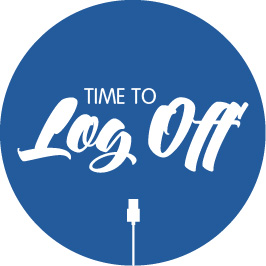
22 Feb How to overcome internet addiction
The term ‘Internet Addiction’ is being thrown around by the media more and more frequently. But, what does it really mean? Internet addiction is an impulsive disorder which has been likened to pathological gambling. It involves compulsive behaviour and excessive internet use to the detriment of the user’s lifestyle, mental and physical health and relationships. In other words, using the internet becomes prioritised over family, friends and work. The latest edition of the Diagnostic and Statistical Manual of Mental Disorders (DSM-V) recognises internet addiction as a disorder requiring further research. And the first US inpatient facility for treating internet addiction opened in 2013.
At Time To Log Off, we are committed to promoting a life of balance to ensure a happy and healthy digital lifestyle. We explain the red flags to look out for if you think you might be experiencing internet addiction. And, importantly, we share some useful advice on what you can do to cut down your dependency and help others to do the same. Don’t worry, we don’t suggest that everyone needs to visit an inpatient facility!

Am I addicted to the internet?
The first step is to recognise behaviour that reveals that you may have an addiction to the internet. For example, do you feel anxious or angry when you can’t access your internet-connected devices? Or maybe, have you wanted to cut down your use in the past but been unable to? These are signs that you could be addicted. Equally, is your excessive internet usage negatively impacting your relationships and working life? If you are spending an excessive amount of time online, this soon becomes disproportionate to time spent with family, friends and enjoying other activities.
How to address your addiction to the internet
To start addressing your internet use, we recommend setting boundaries around when and where you access the internet. For example, you could commit to not accessing the internet after a certain time in the evening. Or, ban all technology from your bedroom so you’re not tempted to use your devices in bed. Instead of being socialable online, try to increase your socialibity offline. Spending more time with loved ones and focusing on hobbies (especially outdoor based ones!) will leave you with less time to get online. Plus, it will distract you from the urge to check what’s happening on the web.
If you are finding it difficult to adjust your lifestyle on your own, one of the best ways to break out of your internet obsession is to come on one of our digital detox retreats. We help our guests find a better balance with life-changing results for their well-being and mental health! Plus, you get to spend a few days off-grid in picturesque locations with great people! What could be more appealing in our modern world?

How to tackle internet addiction in young people
Internet addiction is a sensitive subject. And even more sensitive when you recognise the symptoms in someone else. Did you know that 40% of teens do not complete homework because of time spent with digital devices? Before attempting to tame your teens’ tech time, make sure you are setting a positive example yourself! They definitely won’t respond well if you don’t tackle your digital use, too. One of the best ways to start tackling your family’s online obsession is to ban devices from the dinner table and encourage talking! Similarly, plan dedicated family time to ensure that your kids’ free time does not always default to going online.
Our founder, Tanya Goodin, frequently visits schools to give talks to pupils and parents aiming to raise awareness of young peoples’ technology use and how they should be using the internet for their benefit, not to their detriment. Similar to our retreats for adults, Time To Log Off is planning exciting digital detox camps for teens, so watch this space!







Sorry, the comment form is closed at this time.